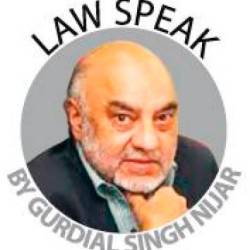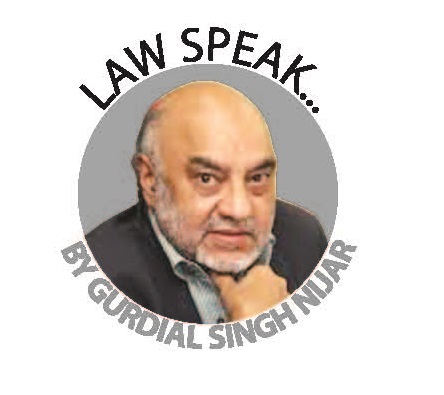ONCE again an ugly spectre hovers above our cohesive nation. Presented by a tiny coterie who question rather belatedly the clearly thrashed-out basis on which our nation was welded together and born.
First, the basis was settled through the negotiations for Merdeka by the three parties representing the diverse communities comprising the Alliance government. They established a common position on the future Constitution involving a compromise: non-Malay citizenship with the retention of Malay special privileges as well as the recognition of the national language and the monarchy. Clear cornerstones of the nation and the Constitution.
This is what is often referred to loosely as “the social contract”. Not an amorphous arrangement between individuals and the state; but an actual, negotiated contract between ethnic communities, indigenous and migrant, planning to live as one integrated nation.
So this was settled politically by the parties representing the various communities as well as by the rulers. The Reid Commission was merely assigned the technical task of translating this political accord into a legal document that later became the Federal Constitution.
This Constitution was accepted by the Conference of Rulers in June 1957. And almost unanimously adopted by the Legislative Council in August. A litany of laws followed to deliver the birth of an independent Malaya: the Federation of Malaya Agreement 1957, the Federation of Malaya Independence Act 1957 (UK), the Federal Constitution Ordinance 1957 and state enactments.
On this carefully drafted founding document was independence ushered in on a drizzly Aug 31, 1957 morning – with seven “Merdeka” shouts by Tunku Abdul Rahman at Merdeka Stadium. Our new nation, he declared, was going to be: “Sovereign, democratic and independent state founded upon the principles of liberty and justice and ever seeking the welfare and happiness of its people”.
Thus did the social contract weave the disparate communities into a single whole fabric.
Second, the form morphed into Malaysia when three new states – Sabah, Sarawak and Singapore – joined the Federation in 1963. (Singapore left in 1965.) Sabah and Sarawak remained with somewhat different laws and legal institutions from those of the West Malaysian polity and its constituent states. With their own High Court and separate legal professions as well as jurisdiction over immigration and changes with regard to citizenship, language and ethnic status.
Third, after the tragic May 13 episode, amendments “redefined” the social contract. More special privileges for Malays and its extension to natives of Sabah and Sarawak. Preferential quotas for tertiary education admissions, and the underlying tenets of the social contract listed as “sensitive issues” that could not be discussed anywhere except as to policy implementation. Not even in Parliament and state assemblies. These were termed the Rukun Negara amendments. They were the basis of the New Economic Policy (NEP) which reflected “affirmative action” to uplift the Malays and natives of Sabah and Sarawak economically – designed to secure 30% ownership of the economy and opportunities for bumiputra citizens.
The Rukun Negara announced on national day 1970 by the Yang di-Pertuan Agong was negotiated between political leaders representing different communities to forge a truly Malaysian nation through an agreed national ideology. Significantly, it highlighted the respect for the Constitution and the rule of law. Even though negotiated under the spectre of emergency rule with parliamentary democracy suspended and elections uncompleted; and detention without trial freely employed against perceived detractors.
Fast forward to 2019. Now there are stirrings to roll back the constructs of nation-building; and dismantle the social contract. Shattering the nation-building efforts assiduously built over the historical past just narrated. On straw issues – implying recklessly of “others” provoking and manipulating an ethnic group, insulting Islam and the monarchy. When reality shows that these institutions and privileges are enshrined as bedrocks in the edifice of the Constitution; and insulated from attack by the Constitution itself and a whole array of supporting laws.
What then of the partisan claim that “This is our land”? A frontal assault of the newly-elected government’s vision of forging ahead the consolidation of a multiracial, multi-religious Malaysia.
The prime minister’s speech to undo this rather acerbic attack – has been viewed differently. By supporters, as a deft manoeuvre to channel the alleged loss of dignity to intra-racial rather than inter-racial causes. By critics, as legitimising a meeting held to engender racial divisiveness.
The historical and present-day facts are unquestionable. Can there be any sane basis to denigrate all those of our citizenry whose ancestry forsook distant lands to build this nation? Or their kith and kin who know this blessed nation as their only committed abode? As the Malay saying goes: “Hujan mas perak negeri orang: hujan keris lembing negeri kita – though it rains gold and silver there, it is still a foreign land: though it rains swords and daggers here, it is still our land”. For better or for worse.
Comments: letters@thesundaily.com















